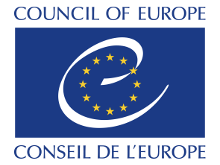
Towards an effective framework of protection for the work of journalists and an end to impunity
The Seminar and Inter-regional dialogue on the protection of journalists took place on Monday 3 November in the building of the European Court of Human Rights in Strasbourg. It was organised jointly by the Council of Europe, UNESCO, the Centre for Freedom of the Media of the University of Sheffield, and the European Lawyers Union. The Seminar was opened by Guido Raimondi, the Vice-President of the European Court of Human Rights, who noted that the court had developed important principles for the protection of journalists under threat; those included the fundamental principle of the positive obligations of states to protect journalists in danger. Mr Raimondi welcomed the prospect of a regional dialogue that would include a detailed analysis of the jurisprudence emanating from different regional frameworks and a consideration of possible improvements.
The written Conclusions of the Rapporteur of the Seminar and Inter-regional Dialogue, Dr Tarlach McGonagle, may be downloaded here . The texts of presentations by some invited Speakers and Panellists may now be downloaded from this website (below). A complete Transcript of the Seminar and Inter-regional Dialogue may be downloaded here
The texts of presentations by some invited Speakers and Panellists may now be downloaded from this website (below). A complete Transcript of the Seminar and Inter-regional Dialogue may be downloaded here
The Seminar addresses the need to improve legal protections for journalists whose safety and security are threatened because of their work. In recent years the number of killings and other violent attacks against journalists has markedly increased. Frameworks of legal protection vary greatly between different regions of the world. The rate of effective investigations leading to prosecutions of those responsible remains low, resulting in de facto impunity for perpetrators. That in turn has a chilling effect on the exercise of the right to freedom of expression and of media freedom.
The international community has acknowledged the negative effect of these realities on the exercise of other basic rights and on the rule of law. The United Nations General Assembly adopted a Resolution in 2013 which calls on states to ensure the necessary protections in law and prompt and effective investigations of attacks. That Resolution proclaimed 2 November as the International Day to end Impunity for Crimes against Journalists.
The UN Human Rights Committee’s General Comment Number 34 on Article 19, issued in 2011, provides detailed guidance on the obligations of States to put in place effective measures to protect against attacks aimed at silencing those exercising their right to freedom of expression, and says that all such attacks should be vigorously investigated and the perpetrators prosecuted. The UN Plan of Action on the Safety of Journalists and the Issue of Impunity, adopted in 2012, foresees an essential role for initiatives involving regional human rights systems in the achievement of the goals of the Action Plan.
The Committee of Ministers of the Council of Europe, in its Declaration of 30 April 2014, urged member states to fulfil their positive obligations to protect journalists and other media actors from any form of attack and to end impunity. The Committee of Ministers also pledged to contribute expertise based on the competence of the Council of Europe to other international organisations.
The Seminar will provide a forum for an intensified inter-regional dialogue among representatives of regional human rights courts and inter-governmental organisations in Europe, the Americas and Africa, together with other experts, to examine the progress of each of the multilateral systems as well as significant gaps in protection. It will also explore ways of advancing the adoption of best practices in regional and national jurisdictions, with the goal of developing a consistent framework of protection globally.
The organisation of the Seminar and the proposal for an intensified inter-regional dialogue reflect the commitment of non-governmental and civil society organisations to a genuinely effective legal framework of protections, as well as the will of UN member states as expressed in Resolutions of UN bodies and in the UN Action Plan.
Human rights treaties are living instruments which must be interpreted and applied in accordance with evolving legal standards and social developments, so that they may effectively provide effective guarantees of protection.
Venue:
Seminar Room, Building of the European Court of Human Rights, Strasbourg
Time and date:
8.30 to 18.00, Monday 3 November 2014
Download the agenda - PDF 150 Ko
Download the concept note - PDF 150 Ko
Download the participants list (PDF 60 Ko)
Venue:
Seminar Room, Building of the European Court of Human Rights, Strasbourg
Time and date:
8.30 to 18.00, Monday 3 November 2014
The Organisers thank Open Society Foundations for supporting this event